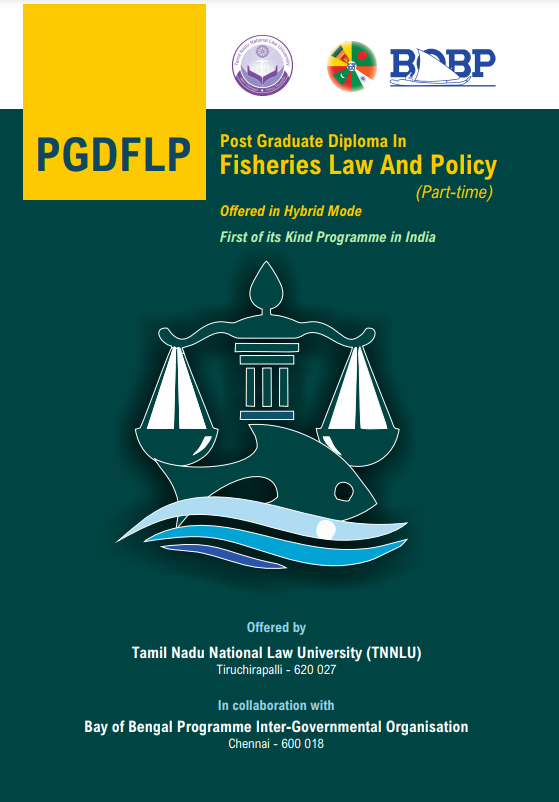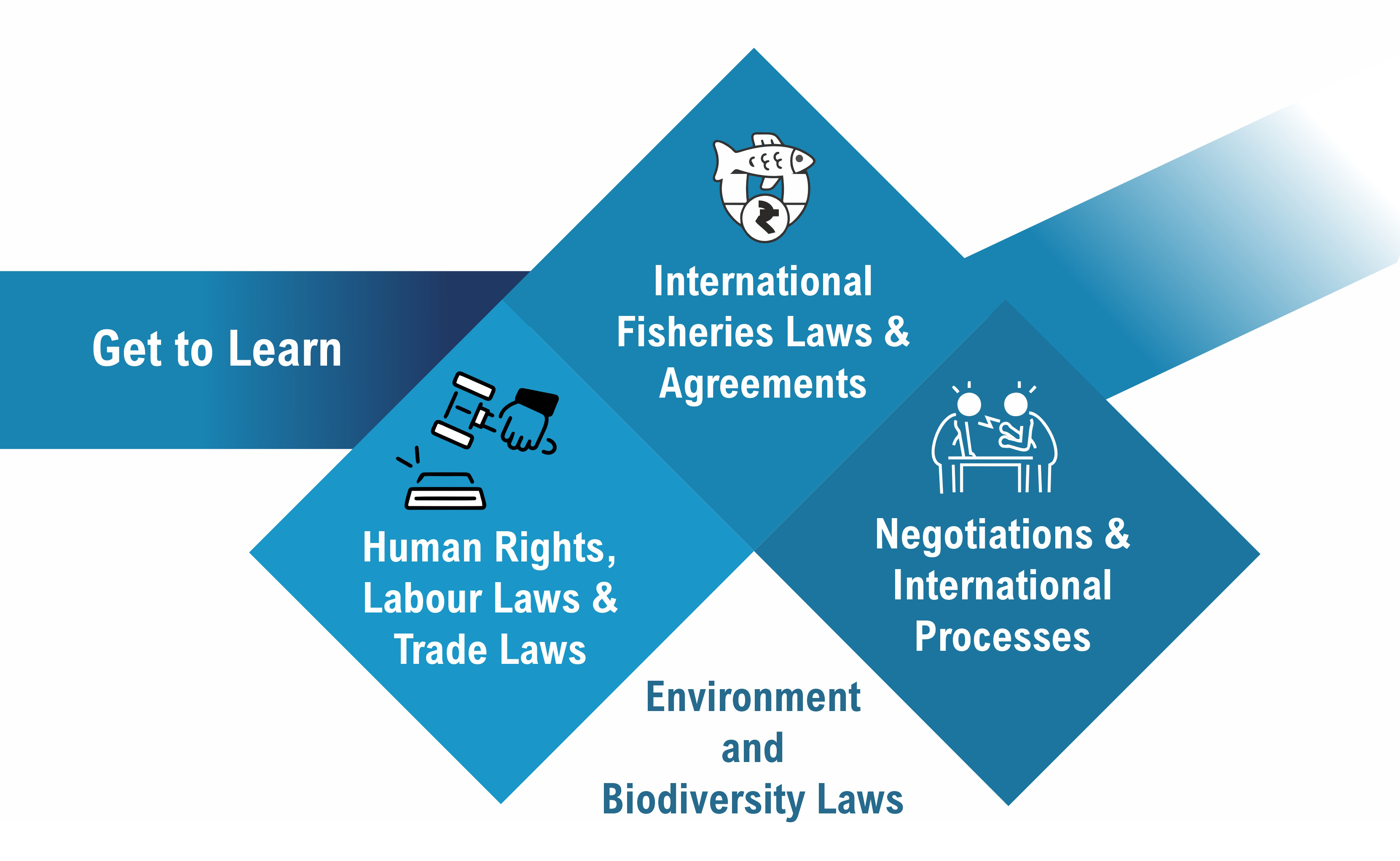Post Graduate Diploma in Fisheries Law and Policy (PGDFLP) Offered by
Tamil Nadu National Law University (TNNLU), Tiruchirapalli - 620 027
In collaboration with
Bay of Bengal Programme Inter-Governmental Organisation, Chennai - 600 018
About the Programme
The modern requirements of fisheries management and policy demand a comprehensive understanding of both national, regional and international frameworks, multidisciplinary knowledge, and the ability to navigate complex global challenges.
Formal training in fisheries education often lacks sufficient focus on legal aspects. Officers in development departments, faculty members in universities and colleges, and researchers in the fisheries sector, who collectively play a crucial role in shaping fisheries governance, generally have limited opportunities to study fisheries and maritime law and policies during their academic training. This gap in education means that many professionals enter the field without a comprehensive understanding of the legal frameworks that govern fisheries management.
Moreover, many fisheries professionals, practitioners, members of civil society and advocacy groups significantly influence national and regional fisheries governance mechanisms. These individuals, despite their practical experience and influence, often lack formal training in the legal and policy aspects of fisheries management.
Despite the significant growth in practical knowledge regarding fisheries law and policies over the years, there remains a gap in its collation and documentation. This absence of systematic academic documentation and synthesis means that valuable insights and lessons learned in the field are not consistently captured and shared. As a result, the development of a comprehensive body of knowledge that could inform future policies and practices is hindered. Therefore, there is an urgent need for formal education programmes that combine fisheries science with legal and policy training. Such programmes would ensure that professionals are well-equipped to tackle the complex challenges of fisheries governance.


Objectives
- Understand the international legal framework governing fisheries and aquaculture
- Dissect and interpret international agreements and treaties pivotal to fisheries
- Explore the dynamics of international cooperation in fisheries management
- Acquire critical thinking and problem-solving prowess to tackle complex fisheries challenges
Unique Features of the Programme

- NEP-2020-Fit: The proposed Programme resonates with the ethos of India's New Education Policy, emphasizing future-oriented, innovative, multidisciplinary, problem-solving, and globally connected education.
- Light but Tight Regulations: This part-time programme is designed with adequate flexibility to enable the participation of practicing officers / researchers, academicians, policy makers, advocates & civil society from different walks of life with ease; while the evaluation parameters shall be robust enough to keep the academic rigour and quality.
- Diverse Clientele: Mid-career officials, academicians and researchers involved directly or indirectly in fisheries management and policy making; Citizens associated with policy advocacy in the field of fisheries; and those planning to take up a career in the above sectors.
- Progressive Certification: Candidates registered for the Programme will be awarded a Certificate on completion of major courses and Post Graduate Diploma in Fisheries Law and Policy on completion of all credit requirements.
- Hybrid Delivery: The programme will be offered in a hybrid mode to cater to the interests of the potential in-service candidates.




